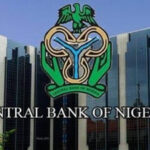In a directive from the Nigeria Inter-Bank Settlement System (NIBSS), United Bank of Africa (UBA), First Bank, and others across the country have been mandated to disconnect various non-deposit-taking financial entities from their NIP (Nigeria Inter-Bank Settlement System Instant Payment) Outwards System.
This move, outlined in a circular dated December 5, 2023, with reference NIBSS/BD/NI/PO/005/051223, comes as a response to violations of the Central Bank of Nigeria’s electronic payment guidelines.
Join our WhatsApp ChannelAccording to the NIBSS, the inclusion of non-deposit-taking financial institutions such as Switching Companies, Payment Solution Service Providers (PSSPs), and Super Agents as beneficiaries in the NIP funds transfer channels goes against the established CBN guidelines on electronic payments for salaries, pensions, suppliers, and taxes within Nigeria.
READ ALSO: Cash Scarcity Is Human Rights Abuse, May Spark Revolution In Nigeria – CBN Warned
Expressing the rationale behind the directive, the NIBSS stated, “Listing non-deposit-taking financial institutions on NIP funds transfer channels contravenes the CBN Guidelines on Electronic Payment of Salaries, Pensions, Suppliers, and Taxes in Nigeria dated February 2014.”
Furthermore, the circular highlighted that although switches, PSSPs, and Super Agents might process outward transfers as inflows to banks, their licenses do not authorize them to retain customers’ funds.
“They are not to receive inflows as their licences do not permit them to hold customers’ funds,” the NIBSS emphasized.
The directive also referenced another regulatory guideline, namely the circular titled ‘Permissible Services and Products of PSSP Operation in Nigeria’, dated May 11, 2018 (Ref: BPD/DIR/GEN/CIR/05/004).
As a result, banks have been instructed to delist all Switches, PSSPs, and Super Agents solely from their NIP Outward Transfer channels while maintaining their connection for inward transfers.
Operating within Nigeria’s payment ecosystem mandates entities to acquire specific licenses from the CBN, such as Switching and Processing, Mobile Money Operations, Payment Solution Services, and Regulatory Sandbox.
However, only Mobile Money Operators (MMOs) possess the authorization to retain customer funds in accordance with CBN regulations.
Reacting to the development, a spokesperson for a prominent financial institution stated, “This directive ensures compliance with established regulatory frameworks, safeguarding the integrity of the financial system. It also reinforces the necessity for adherence to licensing provisions, thereby enhancing consumer protection and maintaining the trust of stakeholders.”
Emmanuel Ochayi is a journalist. He is a graduate of the University of Lagos, School of first choice and the nations pride. Emmanuel is keen on exploring writing angles in different areas, including Business, climate change, politics, Education, and others.



















Follow Us